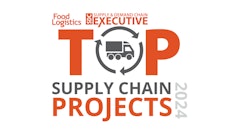
What is going on in Corporate America? Is there a common cause that could lead company executives to ignore sound business practices, laws and regulations, and ethics, and take big risks in the pursuit of growth?
Ed Hess says absolutely. The culprit, he explains, is a maniacal obsession with meeting the market's insatiable hunger for more and more growth. When generating revenue or minimizing costs trumps quality, safety, customers and reputation, eventually value will be destroyed.
"Most business executives accept without question the beliefs that growth is always good, that bigger is always better, and that the healthy vital signs for a public company include ever-increasing quarterly growth that is continuous and linear," says Hess, a professor at the University of Virginia's Darden Graduate School of Business and author of the new book Smart Growth: Building an Enduring Business by Managing the Risks of Growth (Columbia Business School Publishing)
Culprits
Just look at how a focus on growth at all costs has affected some of today's biggest names in the corporate world. Hess points to Toyota's ambitious obsession with being No. 1 in global automobile sales, which led to quality issues, safety issues, major recalls, fines and, at last count, more than 200 lawsuits. Elsewhere, the professor cites BP's alleged cultural obsession with minimizing costs, which led to repeated serious safety, environmental and regulatory problems in the US, with one result being the worst oil spill in U.S. history. BP's history of repeated US regulatory violations is all public record.
Hess also points to Dell's apparent obsession with making quarterly numbers, which led to serious quality issues and to allegedly knowingly shipping defective computers to its customers. And that obsession led to a civil accounting fraud settlement with the SEC whereby the company agreed to pay a $100-million fine while five former and current officers, including founder Michael Dell, also agreed to pay fines.
Finally, the professor cites GE, which in August 2009 agreed to an SEC settlement of a civil fraud action that required the company to pay a $50 million fine to settle alleged accounting frauds engaged in to meet quarterly earnings expectations, and Goldman Sachs, which on July 15 of this year acknowledged its mistakes when the company agreed to settle an SEC civil suit and pay a $550-million fine arising out of the structuring and sale of a complex subprime mortgage product.
If you're looking for a "good news" scenario for these companies, perhaps it is that (for now at least) they have managed to keep their doors open and continue to operate as independent entities, which is more than can be said for kindred spirits such as Lehman Brothers, Merrill Lynch, the "socialized" AIG, the bankrupt Washington Mutual and Arthur Andersen, all of whom pursued growth without properly managing the risks of that pursuit.
"The major takeaway from all of this is that these companies all thought they were simply following a well-established business strategy — grow or die," says Hess, a leading authority on business growth. "At the heart of the bad decisions and self-inflicted wounds of all of these companies was the assumption that continuous growth is the most important goal of any business. The reality is that sometimes the best business strategy is to say 'no' to certain types of growth. Companies need to understand that growth creates risks that need to be aggressively managed. The market's obsession with growth at all costs drives bad behaviors."
Hess believes it is time we acknowledge that the market operates under faulty growth assumptions and that many business leaders have ceded control of their companies to the market. Below he offers what he terms "a few truths about growth":
Conventional wisdom about growth is wrong. Most CEOs have bought into Wall Street's conventional wisdom about growth — wisdom contained in phrases that have become almost a series of mantras: Growth is always good. Bigger is always better. Grow or die. There is widespread belief among analysts — a belief that then shapes corporate behaviors — that public companies should grow in a continuous and smooth manner, as evidenced by ever-increasing quarterly earnings.
"The problem with those beliefs is that there is no empirical basis for them — not in economic or financial theory, not in strategy or any other business discipline, not in the social sciences, not even in the hard sciences like biology that look at things like the basis for organic growth," says Hess. "What the data does show is that consistent, above-average growth is the exception, not the rule. In at least six recent research studies, the likelihood of a public company growing for more than four years in a row above average GDP or average industry growth is less than 10 percent. When you extend the time period to seven years, the percentage is less than 3 percent. Consistent growth, in other words, is hard, and consistent organic growth is even harder."
Obsessions about quarterly growth can lead to "non-authentic" earnings. What happens when companies buy into the conventional wisdom about growth? Several things, says Hess. First, they defer real investments in the growth and innovation needed to pull the global economy out of the current downturn. Second, they spend time, money and intellectual capital creating or manufacturing wasteful and distorted non-authentic earnings that do not represent real growth or innovation. What exactly are those "non-authentic" earnings? They are the non-operational non-core earnings created by CFOs, accountants and investment bankers: for example, accounting reserves, accounting valuations, investment transactions, channel stuffing, liberalizing credit terms and structured financial transactions.
"In effect, these numbers are illusions," explains Hess. "They do not represent the fundamentals of a business that are important for long-term viability and competitiveness. Authentic earnings, on the other hand, are a superior indicator of the strength of a company's customer value proposition. They represent the sale of more value-added goods and services on customary commercial terms to unrelated customers in arm's-length transactions."
Overly ambitious growth can stress an organization's core. Finally, an unrealistic obsession with growth can stress an organization's culture, processes, controls and management capabilities. The shortcuts often necessary to produce those positive quarterly earnings can lead to quality problems, financial risks and declining brand value.
The answer that Hess proposes: Grow smartly. That means being smart about growth by managing the risks of growth. Growth should not harm the essence of your brand and your customer value proposition — that which made you successful — Hess says. Being better is more important in the long run than being bigger. Something is fundamentally wrong when the pressures to grow cause ill-advised corporate behavior such as that recently exhibited by GE, Dell, BP and others, the professor argues.
"The stakes are always high when it comes to planning and managing growth," says Hess. "Today it's clearer than ever that shareholders, employees and consumers alike deserve better from the companies they've invested in and whose products they use.
"Balancing the demands of Wall Street and the hard realities of smart growth is not easy, to be sure," concludes Hess. "It requires courageous leadership, but that's just part of the deal. With leadership comes the obligation to be good stewards of the public's trust and shareholders', employees' and customers' interests."
Ed Hess is author of Smart Growth: Building an Enduring Business by Managing the Risks of Growth (Columbia Business School Publishing)
Hess spent over 30 years in the business world, beginning his career at Atlantic Richfield Corporation and also serving as a senior executive at Warburg Paribas Becker, Boettcher & Company, The Robert M. Bass Group and Arthur Andersen. He is the author of seven books, over 40 practitioner articles, and over 40 Darden cases dealing with growth systems, managing growth and growth strategies.
His other books include The Road to Organic Growth: How Great Companies Consistently Grow Marketshare from Within
His current research focuses on the Darden growth/innovation model, the challenges of managing private company growth; and building enduring organizations. Professor Hess has taught in executive education programs for Harris Corporation, Cigna, Timken, Genworth Financial, Pitney Bowes, Unilever Russia, Westinghouse Nuclear and at IESE (Barcelona) and the Indian School of Business.

























